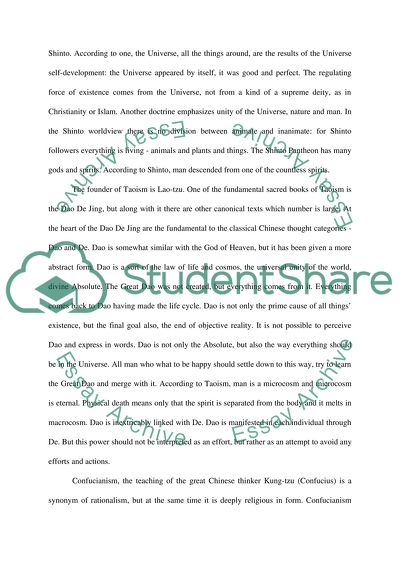Cite this document
(“Compare and/or contrast Taosim and Confucianism and Shintoism Essay”, n.d.)
Retrieved from https://studentshare.org/religion-and-theology/1582809-compare-andor-contrast-taosim-and-confucianism-and-shintoism-concerning-their-concepts-of-the-creation-of-materialization-of-the-universe
Retrieved from https://studentshare.org/religion-and-theology/1582809-compare-andor-contrast-taosim-and-confucianism-and-shintoism-concerning-their-concepts-of-the-creation-of-materialization-of-the-universe
(Compare and/Or Contrast Taosim and Confucianism and Shintoism Essay)
https://studentshare.org/religion-and-theology/1582809-compare-andor-contrast-taosim-and-confucianism-and-shintoism-concerning-their-concepts-of-the-creation-of-materialization-of-the-universe.
https://studentshare.org/religion-and-theology/1582809-compare-andor-contrast-taosim-and-confucianism-and-shintoism-concerning-their-concepts-of-the-creation-of-materialization-of-the-universe.
“Compare and/Or Contrast Taosim and Confucianism and Shintoism Essay”, n.d. https://studentshare.org/religion-and-theology/1582809-compare-andor-contrast-taosim-and-confucianism-and-shintoism-concerning-their-concepts-of-the-creation-of-materialization-of-the-universe.


